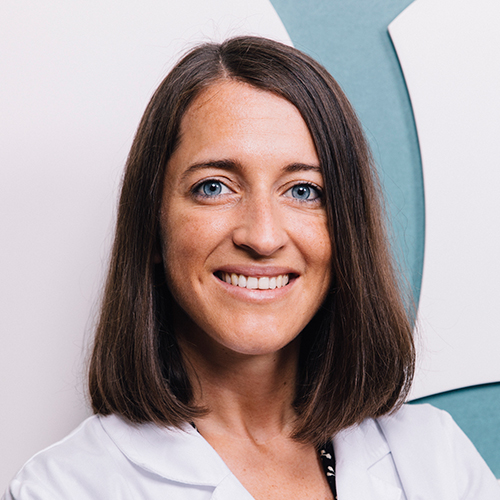How many trips are needed for an IVF treatment in Spain?
When we have to travel to another country for assisted reproductive treatment, one of the main concerns is the number of trips we will need and how long these trips should last. It’s difficult to imagine how it will impact our personal life, so the more informed we are, the better we can organize ourselves and anticipate days off work and expenses.

Factors Affecting the Duration of the Trip
The number of trips and the duration depend mainly on three factors: the patients’ place of residence, the type of treatment and complementary techniques to be used, and finally, the willingness of the medical team to facilitate things for international patients and help organize the treatment as smoothly as possible.
Patients with Easy Access to Spain
We are talking about people who generally come from the European Union, where there are frequent flights, they can enter and leave freely without a visa, and the travel time is less than 2-3 hours. For these patients, travel can be of shorter duration and more flexible. More or less, what we usually recommend from the consultation room is as follows, depending on the treatment to be applied:
Artificial Insemination
It is possible to organize everything with a single trip of 24-48 hours to carry out the insemination itself. The rest, such as consultations, treatment follow-ups, etc., can be done from the place of origin.
Vitro Fertilization or ROPA method
A single trip of approximately one week can be planned. During that week, the ovarian puncture to obtain the eggs will take place, and in the case of using partner sperm, the sperm sample will be left on the same day. Between 3-5 days later, the embryo transfer will take place, and you can return the next day. If it is not possible to stay for a week, two trips of 48 hours each can be organized, one for each procedure, separated by the time the patient or the couple desires.
Egg Donation with partner's sperm
It can be organized with a single trip for both partners, to leave the sperm sample and perform the embryo transfer 5 days later. It can also be (and we usually recommend it this way to make it less stressful) organized into two short trips: a round trip on the same day just for the man, whenever he wants, to leave a sperm sample that will be frozen, and then a 48-hour trip to carry out the embryo transfer in the uterus, which the woman can attend alone if she wishes.
Egg Donation with donor sperm
In this case, a single 48-hour trip must be planned for the embryo transfer.
Egg Freezing
A single trip of 48 hours must be planned for the egg retrieval.
Patients with Difficult Access to Spain
These are patients who either come from very far away, with transoceanic flights, or come to Spain from countries with few or poor transport connections. We would also include in this group those countries that need to apply for a visa to enter Spain, which is usually limited in time and difficult to obtain.
In these cases, it is necessary to be more cautious and plan a few more days, both to have margin to adapt to possible delays or cancellations and to allow people to rest from the trips and undergo treatment in a more relaxed manner. In these cases, I usually recommend:
Artificial Insemination
Come only once for about 5 days to do the final checks and insemination and have some margin to sleep at least one night after insemination. The treatment lasts a total of 15 days from the beginning. If the initial checks cannot be done at the place of origin, it is advisable to come for two weeks and do everything at the clinic.
Vitro Fertilization or ROPA method
A single trip of about ten days can be planned. During these days, the final checks will be done, and the ovarian puncture and embryo transfer will take place. These treatments last about 20 days in total. If the initial checks cannot be done at the place of origin, it is also advisable to come for the whole process.
Egg Donation with partner's sperm
It can be organized with a single trip for both partners for about 7-10 days, to leave the sperm sample and perform the embryo transfer 5 days later.
Egg Donation with donor sperm
In this case, a single trip of 3-4 days must be planned for the embryo transfer.
Egg Freezing
A single trip of about 5 days must be planned for the final checks and the ovarian puncture to obtain the eggs.
Practical Tips for Your Trip to Spain
Consider at least two days and two nights for an embryo transfer or insemination
It is ideal to come at least the day before and leave the day after at the earliest. Only in specific cases can it be considered to stay longer, and even though I still think it is essential to come the day before, the option of leaving on the same day can be considered, but in the evening (from 7-8 pm onwards).
Never leave on the same day of the ovarian puncture
As for the ovarian puncture ( egg retrieval procedure), it is even more important to come to Spain the day before, and above all, never leave on the same day. The egg retrieval must strictly take place on the specified date and time; otherwise, the result can be significantly compromised. It is necessary to come with some margin in case there is a cancellation or unexpected event, such as strikes or mobilizations. Moreover, it is important to stay at least one night after the egg retrieval. The procedure usually takes place in the morning and it is safe surgery that is normally well tolerated. However, it is not a risk-free procedure. There may be poor tolerance to anesthesia or bleeding, and in the evening or at night, medical attention may be required. Therefore, it is essential to plan to stay one night after the egg retrieval, to rest and be able to go to the clinic if there are any abnormal symptoms.
I once had a patient who, against all advice, took her return flight after her puncture at 1 pm, and she came alone. She had a very hard time because she couldn’t fully recover in the operating room and had to take a taxi from the clinic directly to the airport. On the plane, she felt dizzy, didn’t know if it was serious, and couldn’t call us until she landed. Then we were able to assess her case, reassure her, and give her the appropriate recommendations. Fortunately, in the end, the patient had no further complications, and she made it home safely, but it really kept all of us on edge. The treatment is complicated enough as it is without adding more stress!
Listen to your doctor
Finally, it is essential that the medical team always listens and provides all the facilities to personalize schedules and travel arrangements in each case. A good communication with your medical team is essential for you to feel safe and organize your treatment according to your life plans.

Dr Claudia Blancafort
Medical Doctor Specialist in Gynecology & Reproductive Medicine.

Dr Claudia Blancafort
Medical Doctor Specialist in Gynecology & Reproductive Medicine.



